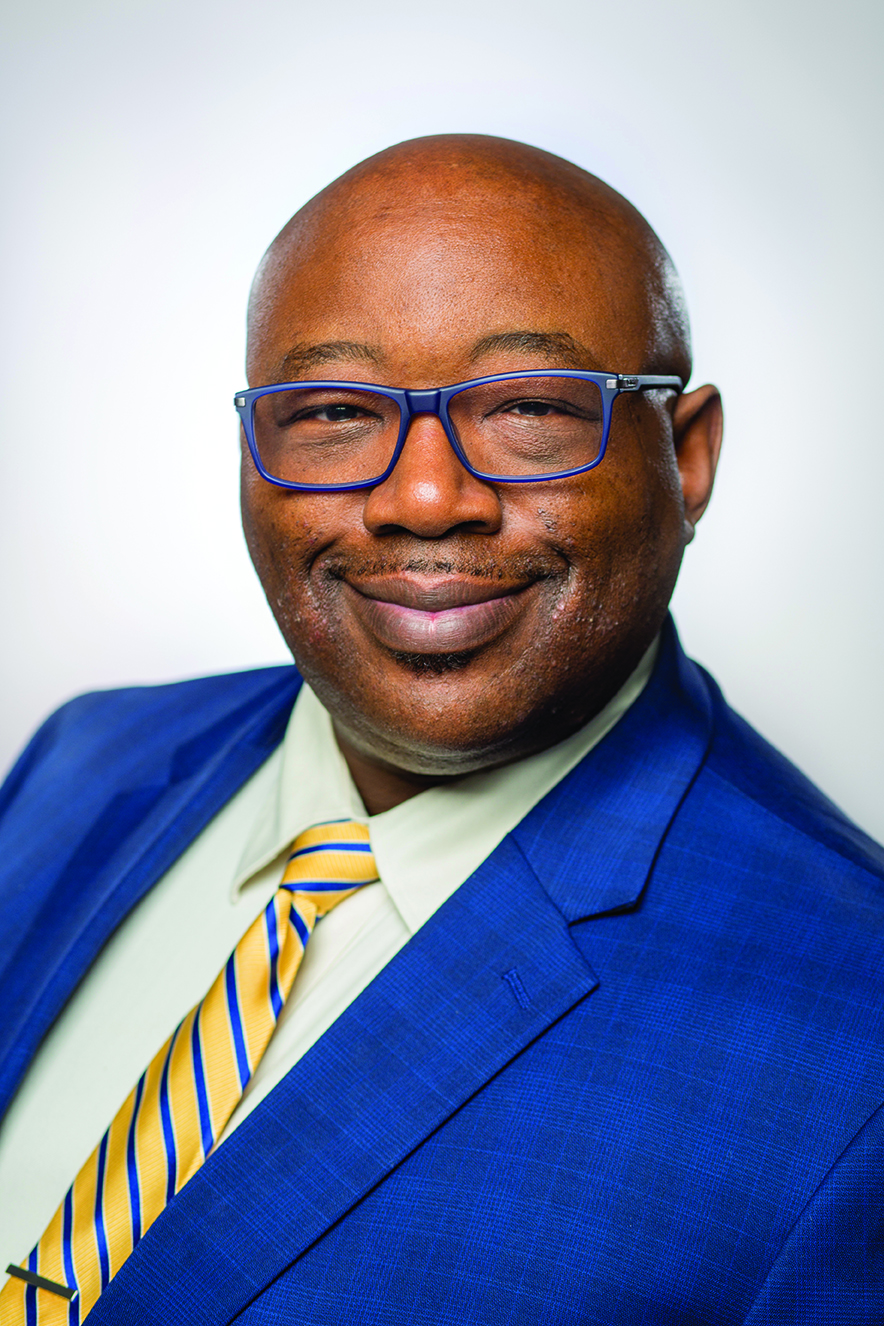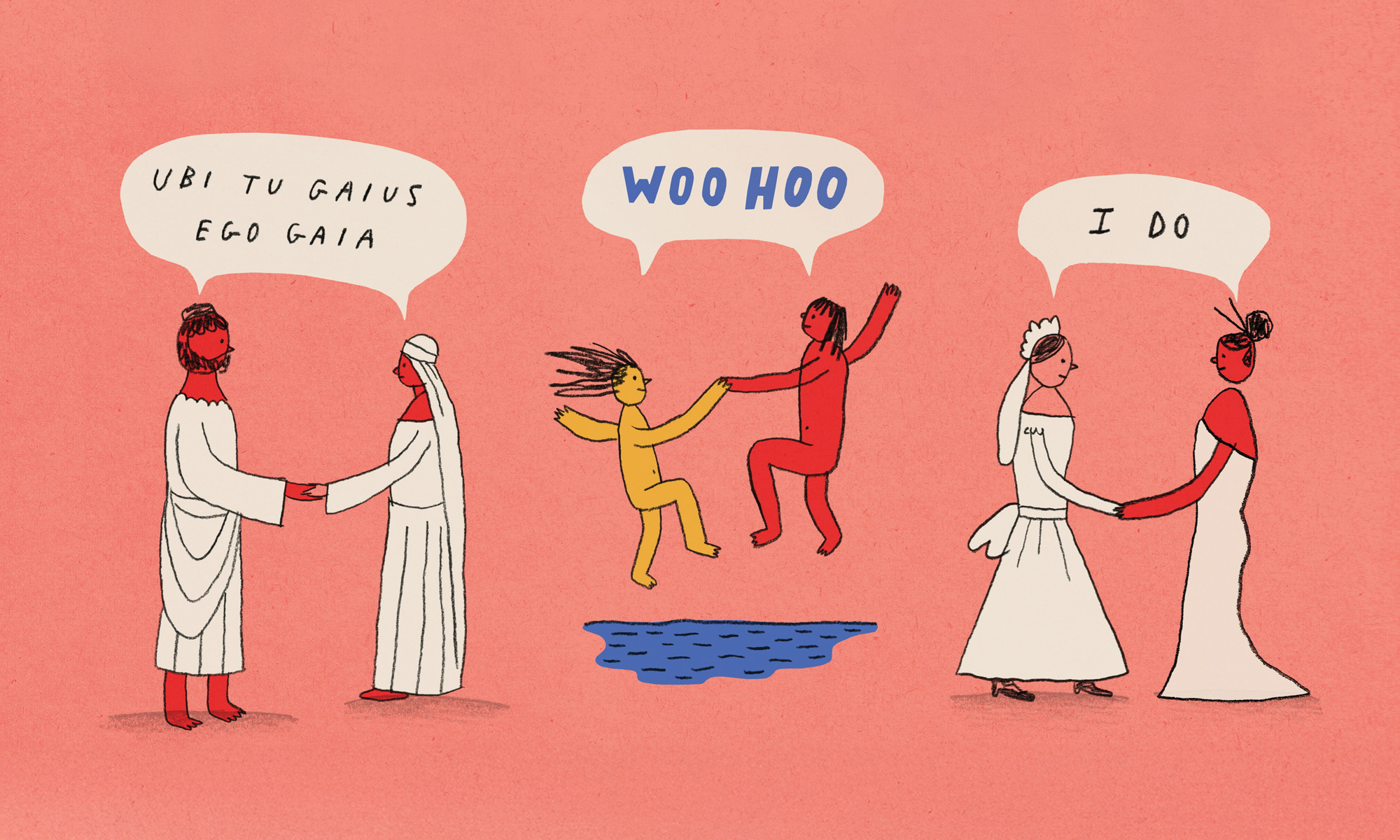Meet John Blackshear, the University’s first vice president for student life.

John Blackshear joined the University of Rochester in January as vice president for student life, a new cabinet-level position that reflects a fresh way of thinking about the student experience
at Rochester.
A native of Savannah, Georgia, with a PhD in clinical psychology from Georgia State University, Blackshear brings to the new role more than 20 years of student life and residential life experience. His most recent position was dean of students and associate vice president for student affairs at Duke University.
What was your own college experience like?
I earned my undergraduate degree at Florida A&M, which is an HBCU [Historically Black College and University]. We were all expected to participate in the excellence of the university and carry it into the world. “How are you going to live a purposeful life?” We had to answer that question a lot.
How did it shape your vision for what student life should be?
I believe that everything we do is important—from how we’re feeding students, to where they live, the aesthetics around the campus, how we’re maintaining the grounds, how our classrooms are structured, and how we encourage discourse on campus. Students will be challenged. I want them to fall in love with the challenge and learn from it.
What’s one way you built community among students at Duke?
I lived on campus for seven years, and my family’s signature event every year was “Donut Sunday.” We would host alumni and students in our apartment each week and have coffee and dozens of donuts. My wife would bake vegan ones for the vegans. You didn’t have to be anything but you. Students would debate God, whether water was wet, or talk about what artistic impressions moved them the most. I’ve done a lot in 22 years in higher ed, but nothing quite as magical as that.
How is student life different now from when you were a student?
I’ve watched student life become more integral to the mission and the public face of the university. I had no idea who ran housing or dining or event planning when I was at A&M. Now, those people have become major players in the reputation of the school.
What are the biggest challenges you foresee in your new role?
The ages of 18 to 26 are periods of growth and significant neurological development. It’s also when a person may experience their first significant mental health crisis. It’s an opportunity for us to usher our students into adulthood by paying attention to a more holistic framework of care: how we’re feeding them, how they’re sleeping, their time management. Are they taking part in recreational activities? Students will experience stress, but we want them sharper, smarter, and more informed when they leave here.
What attracts you to Rochester?
The more I connect with the students, I find this a place where people really care about the academic mission of the University. The number of times people refer to the ethos of Meliora and our values statement—that’s not as common in the academic world as it should be.
I also love the diversity. I was in a meeting of students recently and I remember when I had to work to get a room to look like that. The University understands that diversity is excellence.
What else would you like the University community to know about you?
I view leadership as a service, and I’m committed to serving this institution in a way that will make alumni proud. I welcome their feedback, their partnership, and their support. I’m a father of six, ages 28 to 5, and anyone who knows me will tell you I love music behind only water and air for my survival. I’m the biggest Prince fan on the planet, and I love DJing parties and events on campus. I’m incredibly curious, and I’m going to approach this opportunity with great wonder and deliver my very best.
This story was originally published in the spring 2024 issue of Rochester Review, the magazine of the University of Rochester.




